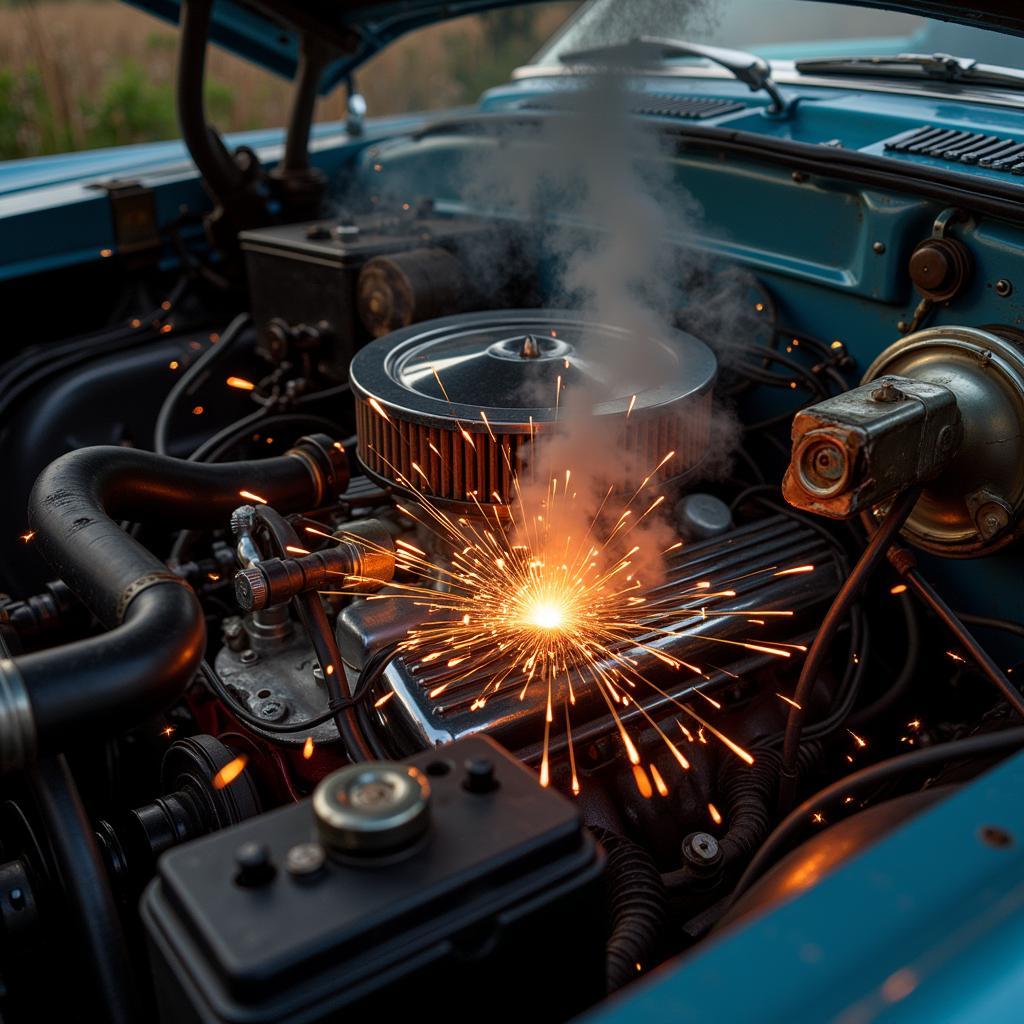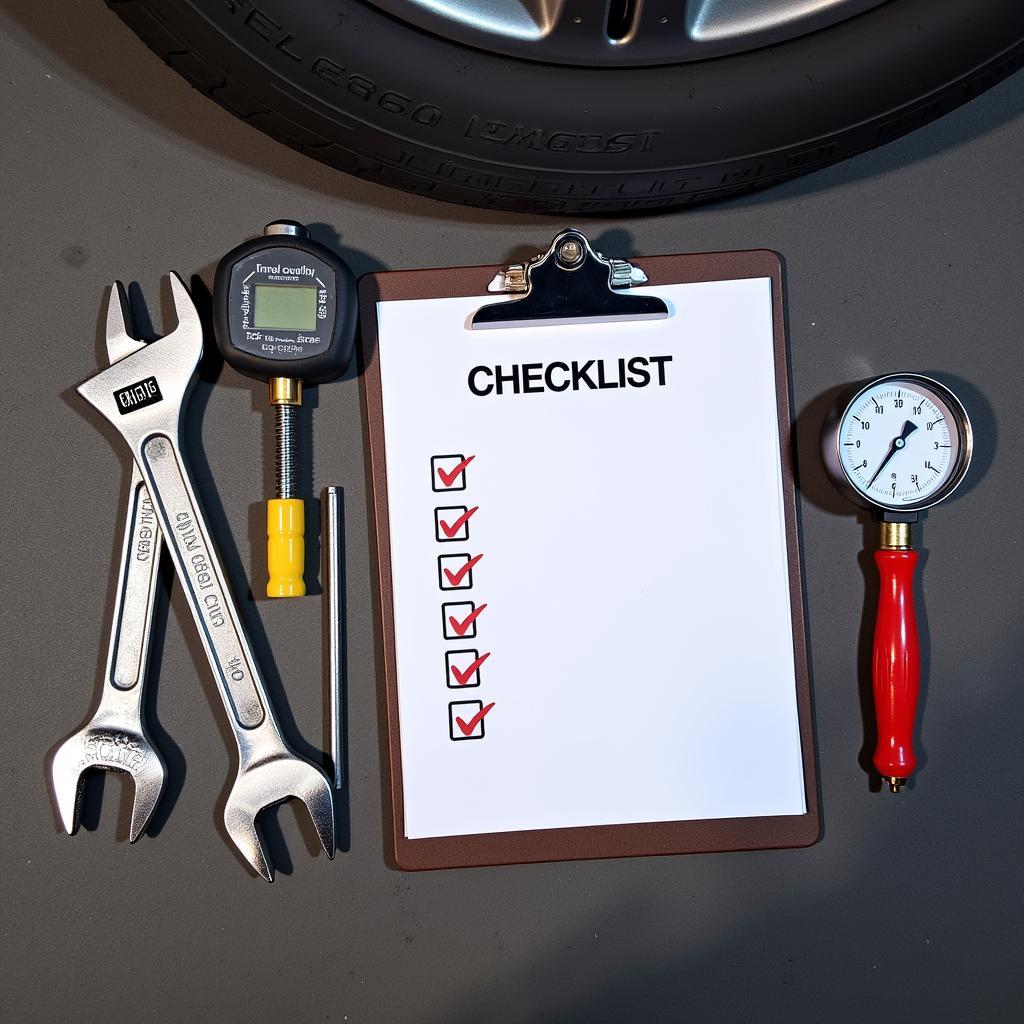Every car owner knows that sooner or later, their vehicle will need some form of maintenance or repair. Whether it’s a simple oil change or a more complex engine issue, it’s important to be aware of common mechanical problems that can arise. This guide will provide an overview of some of the most frequently encountered car problems, along with tips on how to troubleshoot and resolve them.
Engine Problems
The engine is the heart of your car, so when something goes wrong, it can be a major inconvenience. Some common engine problems include:
Engine Misfires
An engine misfire occurs when one or more cylinders in your engine don’t ignite properly. This can be caused by a variety of factors, including faulty spark plugs, bad ignition coils, or fuel delivery problems. If you notice a rough idle, loss of power, or a rattling noise from the engine, an engine misfire could be the culprit.
Expert Tip: “One of the first things to check is the spark plugs. If they’re worn out or fouled, they can cause misfires. You should replace your spark plugs every 30,000 miles or so,” advises John Smith, a certified automotive technician with over 20 years of experience.
Engine Overheating
An overheated engine can be a serious problem, potentially causing severe damage. The most common cause of overheating is a lack of coolant, which can result from a leak or a faulty radiator. Other potential causes include a clogged radiator, a malfunctioning thermostat, or a broken water pump.
Expert Tip: “If your car’s temperature gauge starts to rise, pull over to a safe location and let the engine cool down before attempting to diagnose the issue,” advises Mary Jones, a certified mechanic and owner of a successful auto repair shop.
Engine Oil Leaks
Engine oil leaks can lead to reduced lubrication and ultimately engine damage. Common causes include a worn or damaged oil pan gasket, a leaky valve cover gasket, or a cracked oil filter housing.
Expert Tip: “Always check your engine oil level regularly and look for any signs of leaks. If you see oil dripping from your engine, it’s important to get it checked by a mechanic as soon as possible,” advises David Lee, a mechanic specializing in engine repairs.
Transmission Problems
The transmission is responsible for transferring power from the engine to the wheels. Here are some common transmission problems:
Transmission Slipping
Transmission slipping occurs when the transmission doesn’t engage smoothly, resulting in a loss of power or a feeling of “slipping” when you accelerate. This can be caused by worn-out clutches, low transmission fluid, or a faulty valve body.
Transmission Fluid Leak
Low transmission fluid can lead to slipping and other issues. Leaking transmission fluid can be caused by a worn or damaged seal, a cracked transmission pan, or a loose drain plug.
Transmission Noise
Unusual noises coming from your transmission could indicate a problem. Grinding noises often point to a faulty transmission bearing or gear, while a whining noise might indicate a problem with the transmission pump.
Brake Problems
The brakes are essential for safe driving. Here are some common brake problems:
Brake Pad Wear
Brake pads wear down over time and need to be replaced. Worn-out brake pads can cause a squeaking or grinding noise when you brake.
Brake Rotor Warping
Brake rotors can warp due to excessive heat or impact. This can cause vibration or pulsation in the brake pedal.
Brake Fluid Leak
Brake fluid leaks can lead to a loss of braking power. The leak may be caused by a damaged brake hose, a leaky caliper, or a cracked master cylinder.
Steering Problems
Steering problems can compromise your ability to control the car. Some common issues include:
Power Steering Fluid Leak
Power steering fluid leaks can cause a loss of power assistance and make it difficult to steer.
Steering Wheel Vibration
Steering wheel vibration can be caused by misaligned wheels, worn-out steering components, or a problem with the tires.
Loose Steering Wheel
A loose steering wheel is often a sign of worn-out steering components, such as the steering rack, tie rods, or ball joints.
Electrical Problems
Electrical problems can be tricky to diagnose and often require a skilled technician. Some common electrical problems include:
Battery Issues
A faulty battery can prevent your car from starting. The battery may need to be charged, replaced, or tested for a bad cell.
Alternator Failure
The alternator is responsible for charging the battery while the engine is running. A faulty alternator can lead to battery drain and potentially leave you stranded.
Electrical Short
Electrical shorts can cause a variety of problems, including lights failing, the engine stalling, or even a fire.
Other Common Problems
In addition to the problems discussed above, here are some other common mechanical issues that car owners may encounter:
- Exhaust System Problems: A leaking exhaust system can cause noise, pollution, and even safety hazards.
- Suspension Problems: Worn-out suspension components can lead to poor handling, excessive noise, and premature tire wear.
- Tire Problems: Flat tires, worn tread, and improperly inflated tires can all compromise safety and performance.
- Cooling System Problems: In addition to overheating, a leaking or faulty cooling system can also cause corrosion and damage to the engine.
Conclusion
Regular car maintenance and being aware of common mechanical problems can help you avoid costly repairs and ensure your car is safe and reliable. If you notice any unusual noises, changes in performance, or warning lights on your dashboard, it’s best to take your car to a trusted mechanic for diagnosis and repair.
Remember, a well-maintained car is a safe car. By paying attention to these common mechanical problems, you can stay ahead of issues and keep your vehicle running smoothly for years to come.
For help with any of the problems discussed above, or for any other auto repair needs, contact AutoTipPro today!
Phone: +1 (641) 206-8880
Address: 500 N St Mary’s St, San Antonio, TX 78205, United States
FAQ
Q: How often should I get an oil change?
A: It’s generally recommended to get an oil change every 3,000-5,000 miles, although this can vary depending on your driving habits and the type of oil used.
Q: What are the signs of a bad alternator?
A: A bad alternator can cause the battery light to come on, the headlights to dim, and the engine to stall.
Q: How can I tell if my brake pads need to be replaced?
A: You can often hear a squeaking or grinding noise when braking if the pads are worn. A mechanic can also inspect the pads and tell you if they need replacement.
Q: What should I do if my car overheats?
A: If your car overheats, pull over to a safe location and let the engine cool down before attempting to diagnose the issue. Do not open the radiator cap while the engine is hot, as this could cause burns.
Q: What are some tips for preventing car problems?
A: To prevent car problems, follow your car’s maintenance schedule, check your fluids regularly, and pay attention to any warning lights or unusual noises.






Leave a Reply